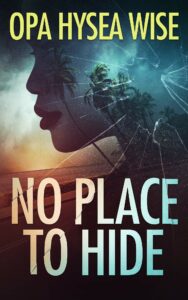A subtle, single theme emerges across almost all genres, including crime fiction—an exploration of the meaning of life. As authors, we take on the “meaning of life” question by not just telling the reader something happened, but digging into the reasons behind what happened. We then enfold those reasons into a much larger story. Asked whether crime fiction is an appropriate vehicle for imparting life lessons and profound truths, I’ll admit the question gave me pause. I believe it does but does it, and why? Here is my opinion.
As authors, in colorful detail, we describe our version of the world. Created out of our childhood upbringing, our morals of either right or wrong imparted with lessons learned every day—(“don’t set your sister’s doll on fire,” “don’t yell in a church,” “obey and do not question authority,”) we offer our opinions of how the world works and the lessons to be learned. Can the cases be complex? Yes, they often are. Can those complex problems have no real moral center of right or wrong? Yes again. The issues are probably why we are writing about them. In fact, the protagonist in our stories tends to struggle with the same problems we the writer do.
Crime fiction may be an appropriate vehicle for imparting life lessons and examining profound truths because there are common truths that we all share. The most prolific truth, regardless of our skin color, cultural and religious affiliation, or geographic location, is our common experience—a truth we can all embrace. When we are physically sheltered from one another, we may feel we are going through the struggle alone. But it is our shared experiences through the written word that can help us feel less isolated and more connected.
In crime fiction, the commonality of dying and the reason for the death are scrutinized. Whether our story deals with dying at the hands of another, by murder/suicide, as a product of power, or any other social ill we can contrive, our ability to cope with the finality of life offers a plethora of lessons and profound truths. To understand death, we write about the existence of humans, yet our existence cannot exist outside of understanding the importance of life. We allow our characters’ feelings to wax poetic about whether death is the final test about the meaning of life. We question whether death is meaningless, and we allow our characters to ponder the cruel, often harshness of loss.
As authors, we often use our shared experiences to hold up a mirror to the world, to examine the values of the larger society, and to question society’s version of perceived truth. What crime fiction does well is to play off two different perceptions of life. The first perception proclaims that everything in the seen world should be taken at face value—similar to the adage, ‘what you see is what you get;’ nothing is hidden, and everything in the world is concrete. We see this played out in Dickens’ Oliver Twist and television crime drama. In Oliver Twist, criminals live under the rule of ignoble action and motive, arousing in us a moral distaste for their personhood. The story calls into question the message that there is a causality between being poor and “criminality,” readily accepted during Victorian times. Thankfully, televised modern-day crime drama and crime fiction have challenged the validity of that notion.
The second approach allows our imagination to see beyond what “is” and move into an unknown place—a place that doesn’t exist in our physical world. In other words, we can “see” a future where anything we imagine has the potential to be called into existence. It is a world full of abundance and endless possibilities. This approach is where the majesty of profound truths thrives.
Crime fiction authors manipulate both approaches to life, offering the reader a choice. Pitting “good” against “evil,” “good” characters come out on top in crime fiction. While the aftermath of the crime and how it impacts the lives of those “good” characters is harrowing, if the characters’ course is right and proper, they will ultimately prevail. The character and the reader will also discover the world around them holds a promise not yet attained. For “evil” characters, authors often contrast the world of promise to a world where everything is black or white, and there are no third choices, there is no contract for better. This part of the world is where authors can further hold a mirror up to society and explore social values, perhaps asking, do our values serve us? Is this life? Is there a way to make life better? From a place of physical existence, can we call into the world something different?
So, yes, crime fiction is one of many genres to explore familiar and profound truths. It requires that we stare into both worlds—the seen physical world and the world which does not yet exist. Look, none of us knows what the world is like, do we? From our limited understanding of our part of the universe, we barely have a clue. We only have our own experiences that color our perception and the lessons that go along with the experience. Yet together, perhaps, all of the pieces of the stories we thread together can create a tapestry of our human story and the profound lessons we have learned along the way.
***


















